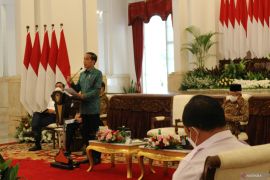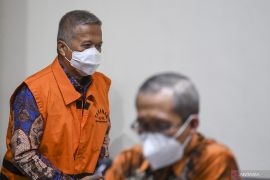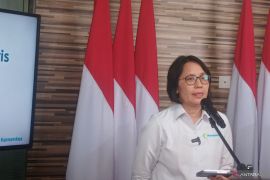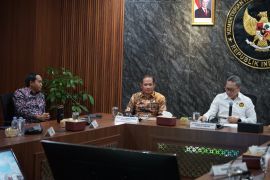Nia Elvina from the University of National (Unas) said the crisis in the country`s democracy was marked with the arrest last week of Chief Justice of the Constitutional Court Akil Mochtar.Jakarta (ANTARA News) - Rampant and massive corruption has been the root cause of crisis in Indonesian democracy , a sociologist said.
Nia Elvina from the University of National (Unas) said the crisis in the country`s democracy was marked with the arrest last week of Chief Justice of the Constitutional Court Akil Mochtar.
"A highly respected state institution, believed as a the last fortress for justice has collapsed," Nia said here on Monday.
Akil Mochtar was caught red handed by the Corruption Eradication Commission (KPk) receiving bribe triggering an uproar nation wide demanding the heaviest possible punishment for Akil.
Nia said a society with corrupt mentality has been inherited from the previous regimes.
The arrest of Akil was only several weeks after the nabbing of head of the Upstream Oil and Gas Regulator (SKK Migas) Rudi Rubiandini, who was also caught red handed by the KPK.
KPK already arrested and named suspects a number of high ranking officials including minister, police generals, political party leaders and lawmakers.
Many observers said only KPK is believed to be free of corruption among the state institutions.
Nia , who is a member of a group of rural study researchers of the University of Indonesia (UI), said the Indonesian society is being sick.
The people are against the practice of money politic, but at the same time they are easily dragged into the practice, she said.
She pointed to report that many people were cheated offering money to be accepted as civil servants.
She said too much liberalism has made both the elite and the ordinary members of the community equally corrupt.
The people have been devoid of the interest to defend mutual interest, she said.
She said in order to heal the social illness immediate return to the educational paradigm based on Pancasila is necessary.
Both the elite and ordinary members of the community need to be convinced of the values of Pancasila to eradicate the corrupt mentality, she said.
"Otherwise, the process of democracy development and implementation of the nation`s ideals would face difficult challenges," she said.(*)
Editor: Heru Purwanto
Copyright © ANTARA 2013











